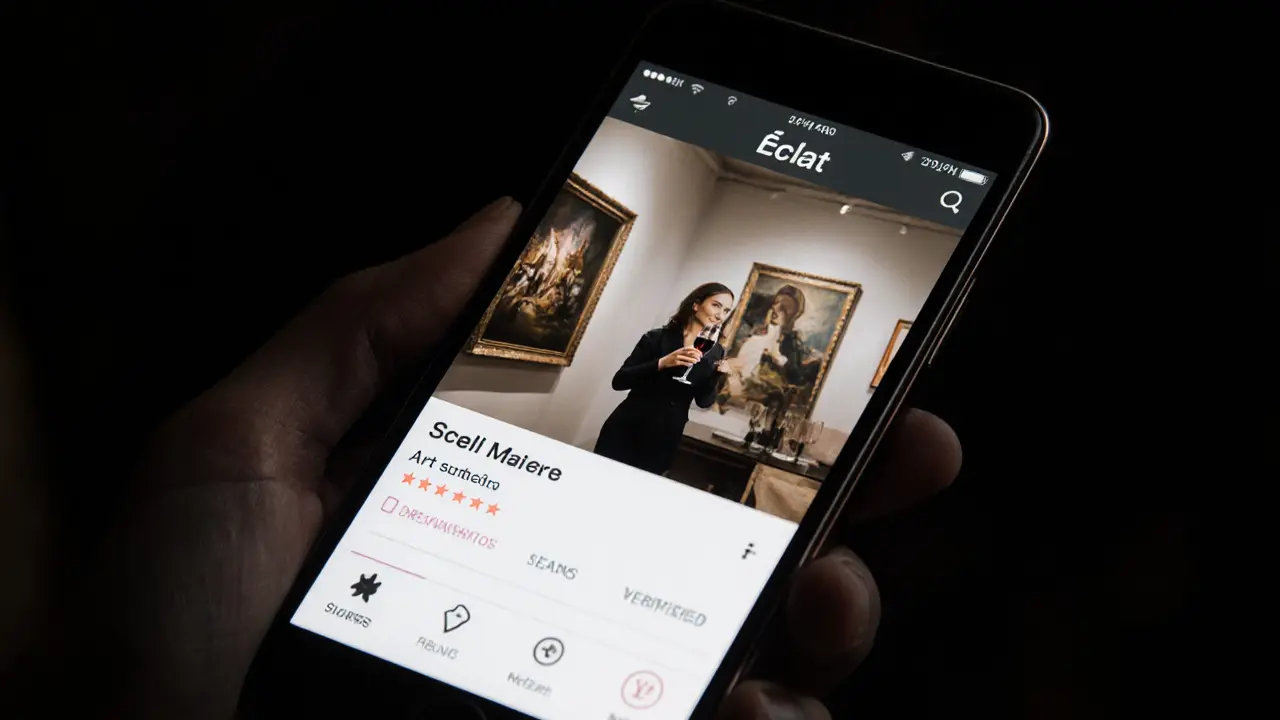Paris has long been a city of romance, art, and freedom-but when it comes to escorting, the lines have never been blurrier. In 2025, the escort industry here isn’t what it was ten years ago. It’s not just about meeting someone for dinner or a night out anymore. It’s evolved into a complex mix of digital platforms, legal gray zones, and shifting social attitudes. If you’re wondering what’s next for escorting in Paris, the answer isn’t found in old stereotypes. It’s in the apps, the laws, and the quiet changes happening behind closed doors.
The Legal Reality: No More Street Hustling
In France, prostitution itself isn’t illegal-but buying sex is. That law, passed in 2016, changed everything. Since then, street-based escorting in Paris has dropped by nearly 70%, according to police data from the Préfecture de Police. You won’t see the same kind of overt solicitation in Montmartre or near the Châtelet metro stations anymore. What’s left isn’t the wild, open scene of the 90s. It’s a quieter, more discreet operation, mostly run through encrypted apps, private messaging, and invitation-only networks.
Independent escorts now operate like freelancers. They build their own brands, manage their own bookings, and often use platforms like OnlyFans or private Telegram channels to screen clients. Many don’t even list themselves as "escorts." They call themselves "companions," "personal assistants," or "event partners." The language has changed to avoid legal traps. And it works-for now.
Technology Is the New Middleman
Remember when you’d call a number from a flyer? Or meet someone in a hotel lobby after a vague text? That’s almost gone. Today, the top escort services in Paris use custom-built apps with end-to-end encryption. Clients don’t message directly. They fill out profiles, upload references, and get matched through algorithms that filter for safety, budget, and preferences.
One app, called Éclat, launched in 2023 and now has over 12,000 verified users in Paris alone. It doesn’t allow explicit photos or direct payment processing. Instead, it uses a points system where clients earn credits by completing profile verification, leaving reviews, and attending group events. Escorts set their own rates and availability. The app takes no cut. That’s rare in this industry-and it’s why it’s growing fast.
Even high-end agencies have gone digital. Agencies that once charged €1,500 for an evening now offer tiered digital packages: €300 for a 90-minute coffee meeting, €800 for a private dinner with a curated itinerary, €2,500 for a weekend getaway with travel arrangements handled. The experience is becoming more about curated moments than physical intimacy.
The Rise of the "Companion Economy"
More people in Paris are hiring companions-not for sex, but for presence. A 52-year-old executive from Lyon hires someone to attend art gallery openings with him. A 38-year-old woman from Geneva pays for a companion to join her on a solo trip to the Louvre. These aren’t romantic relationships. They’re transactional friendships, built on trust, discretion, and shared interests.
A 2024 survey by the Paris Institute of Social Trends found that 41% of clients who used escort services in the past year said their main reason was "emotional companionship," not sexual activity. That’s up from 19% in 2019. The demand isn’t for bodies. It’s for attention, conversation, and the feeling of being seen.
This shift is forcing a rebrand. Many escorts now list skills like "fluent in five languages," "trained in etiquette," or "experienced with high-net-worth clients." Some have degrees in psychology, theater, or hospitality. One escort, known only as "Léa," has a master’s in art history and leads private tours of Paris’s lesser-known museums. Her rate? €450 an hour. She doesn’t offer sex. She offers depth.

Who’s Hiring Now?
The stereotype of the lonely businessman paying for company is fading. Today’s clients are more diverse:
- Young professionals (25-35) who feel isolated in a city of 2 million people
- Divorced or widowed individuals seeking non-judgmental connection
- Foreign executives who don’t speak French well and want someone to navigate social settings
- Women hiring male companions for safety or social confidence
- Seniors who want someone to take them to the opera or help them feel youthful again
There’s also a growing group: people with disabilities. A nonprofit called Paris Without Barriers now partners with vetted companions to help clients with mobility or sensory impairments attend events. These companions are trained in accessibility, communication, and emotional support. It’s not about romance. It’s about inclusion.
The Dark Side: Exploitation and Regulation Gaps
Not everything is polished. Behind the sleek apps and curated experiences, exploitation still exists. Some women, especially from Eastern Europe and North Africa, are still trapped in debt-based systems. Agencies charge them for "training," "marketing," and "housing," then take 80% of their earnings. These cases are harder to track because they don’t use public platforms.
Law enforcement doesn’t have the resources to monitor encrypted apps. And because the industry is now so fragmented, there’s no central registry. That means there’s no way to verify if someone is working voluntarily or under coercion. Human rights groups are pushing for a new law: mandatory registration for all professional companions, with access to healthcare, legal aid, and exit programs. So far, the government has resisted, calling it "an overreach into private life."

What’s Next? Three Predictions for 2026-2030
Here’s what’s likely to happen in the next five years:
- Regulation will tighten-but not how you think. Instead of banning services, the city may require all commercial companions to register with a municipal database. Think of it like a license plate for human connection. It won’t stop the industry, but it will make exploitation harder to hide.
- AI companions will enter the market. Chatbots designed to simulate emotional support are already being tested in Japan and Germany. In Paris, a startup called Émotion AI is developing a voice-based companion app that learns your preferences over time. It won’t replace humans-but it will undercut prices for low-end clients. Expect to see ads for "24/7 digital companion" services by late 2026.
- The stigma will keep fading. More people will admit to using companionship services. Celebrities, influencers, and even politicians are already doing it quietly. As society normalizes the idea of paying for emotional labor-just like you pay for a therapist or a personal trainer-the word "escort" will disappear from public conversation. It’ll just be called "companion work."
Final Thought: It’s Not About Sex Anymore
The future of escorting in Paris isn’t about sex. It’s about loneliness. It’s about the cost of connection in a city that’s beautiful but often cold. People are paying not for touch, but for presence. For someone who remembers their name. For a laugh that doesn’t come with judgment. For a quiet evening where they don’t have to perform.
If you think this industry is declining, you’re looking in the wrong place. It’s not dying. It’s transforming. And in the quiet corners of Paris, where the Seine reflects the city lights, people are still seeking connection. They just don’t need to say it out loud anymore.
Is escorting legal in Paris?
In France, selling sex is legal, but buying it is not. That means escorts can legally offer their time and companionship, but clients risk fines if they pay for sexual services. Most professional escorts in Paris now avoid any explicit sexual activity to stay within the law. Many focus on dinner dates, cultural outings, or emotional support instead.
How do I find a reputable escort in Paris today?
Avoid public ads, social media posts, or websites that look like classifieds. The safest options are private apps like Éclat or referrals through trusted networks. Reputable escorts will never ask for upfront payment without a video call or in-person meeting. They’ll also have clear boundaries, a professional profile, and references. If someone pressures you or seems secretive, walk away.
Can I hire an escort for non-sexual reasons?
Absolutely. Many people hire companions for events, travel, language practice, or emotional support. It’s becoming more common to pay for someone to attend a concert with you, help you navigate a foreign city, or simply have dinner and talk. These services are often listed as "companion services" or "personal hosting" to avoid legal issues.
Are there male escorts in Paris?
Yes, and their numbers are growing. Male escorts serve women, men, and couples. Many specialize in fitness, style coaching, or social confidence building. Some work with clients who feel uncomfortable in dating scenes or need help with public speaking. The market for male companions is less visible but just as active as the female market.
What’s the average cost of an escort in Paris in 2025?
Rates vary widely. A basic 2-hour meeting might cost €200-€400. A full evening with dinner and cultural activities runs €600-€1,200. High-end companions with specialized skills-like multilingual guides, art experts, or corporate etiquette coaches-can charge €800-€2,500 per session. Some offer weekly or monthly retainers for regular clients.
Is it safe to use escort services in Paris?
Safety depends on how you approach it. Avoid strangers from unverified sources. Use platforms with identity verification. Always meet in public places first. Never share your home address or travel plans until trust is established. Many escorts now require clients to provide references or proof of identity. If something feels off, trust your gut.








